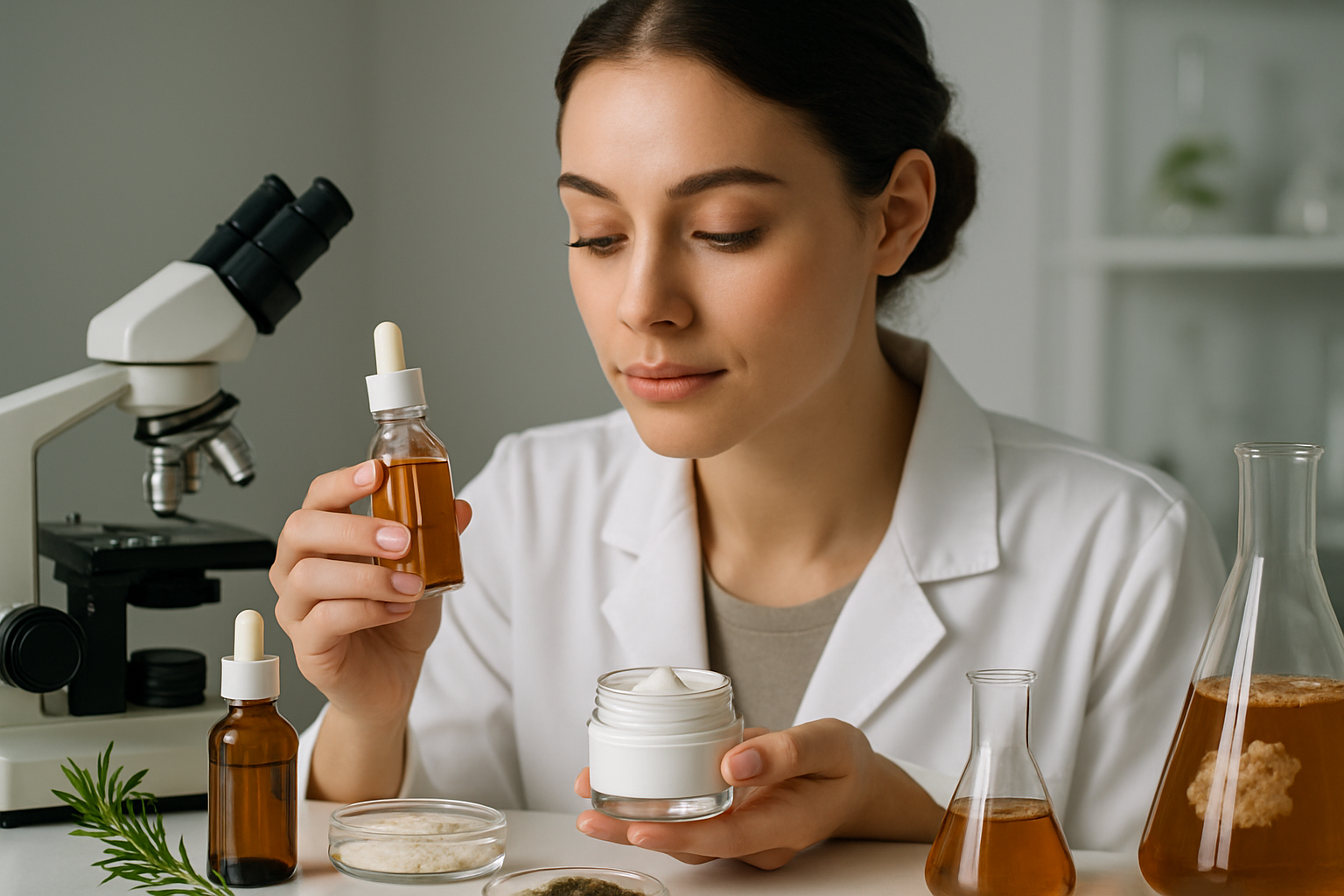Fermented Skincare: The Probiotic Revolution in Beauty
In the ever-evolving world of beauty and skincare, a new trend is quietly fermenting its way to the forefront. Fermented skincare, a revolutionary approach harnessing the power of beneficial bacteria, is transforming how we care for our skin. This innovative method draws inspiration from age-old fermentation practices traditionally associated with food and beverages. By applying these principles to skincare, beauty brands are tapping into a wealth of potential benefits that promise to revolutionize our daily routines. As consumers become increasingly aware of the importance of skin health and the role of microorganisms in our overall well-being, fermented skincare products are gaining traction as a natural, effective solution for various skin concerns.

During fermentation, the molecular structure of ingredients is altered, often making them more easily absorbed by the skin. This increased bioavailability means that the active ingredients can penetrate deeper into the skin layers, potentially enhancing their effectiveness. Additionally, the fermentation process can create new beneficial compounds that were not present in the original ingredients.
The probiotic content in fermented skincare products is particularly noteworthy. These live microorganisms can help balance the skin’s microbiome, which plays a crucial role in maintaining skin health and protecting against harmful bacteria.
Historical Roots and Modern Revival
While fermented skincare may seem like a new trend, its roots can be traced back centuries. In many Asian cultures, particularly in Korea and Japan, fermented ingredients have long been used in traditional beauty rituals. For example, sake brewers in Japan were known for their exceptionally soft and youthful hands, a benefit attributed to their constant contact with fermented rice.
In recent years, there has been a resurgence of interest in these traditional practices, coupled with modern scientific understanding. This revival has led to the development of sophisticated fermented skincare products that combine ancient wisdom with cutting-edge technology.
The growing popularity of K-beauty (Korean beauty) has played a significant role in bringing fermented skincare to the global stage. Many Korean skincare brands have incorporated fermented ingredients into their formulations, citing improved efficacy and gentler effects on the skin.
Benefits of Fermented Skincare
Fermented skincare products boast a wide array of potential benefits, making them appealing to a diverse range of consumers. One of the primary advantages is improved hydration. The fermentation process can create natural humectants, substances that help the skin retain moisture. This can lead to a plumper, more supple complexion.
Another significant benefit is enhanced skin barrier function. The probiotics and organic acids produced during fermentation can help strengthen the skin’s natural protective barrier, making it more resilient against environmental stressors and less prone to irritation.
Fermented ingredients may also offer anti-aging benefits. Some studies suggest that the antioxidants produced during fermentation can help protect the skin from free radical damage, potentially slowing the appearance of fine lines and wrinkles.
For those with sensitive skin, fermented skincare can be particularly beneficial. The fermentation process often results in gentler, less irritating formulations. This is because some of the larger molecules that might typically cause irritation are broken down into smaller, more skin-friendly compounds.
Popular Fermented Ingredients in Skincare
A wide variety of ingredients can be fermented for use in skincare products. Some of the most popular include:
-
Rice: Fermented rice water has been used in Asian beauty rituals for centuries. It’s rich in vitamins, minerals, and amino acids that can help brighten and smooth the skin.
-
Green Tea: Already known for its antioxidant properties, fermented green tea may offer even more potent benefits for the skin.
-
Soy: Fermented soy extract is often used in anti-aging products due to its potential to improve skin elasticity and reduce the appearance of wrinkles.
-
Ginseng: This traditional herb becomes even more potent when fermented, offering potential anti-aging and skin-brightening benefits.
-
Black tea: Fermented black tea, also known as kombucha, is rich in organic acids that can help exfoliate and brighten the skin.
Incorporating Fermented Skincare into Your Routine
For those interested in exploring fermented skincare, it’s important to start slowly and pay attention to how your skin responds. While these products are generally gentle, everyone’s skin is different, and it’s always wise to introduce new products gradually.
Fermented skincare products come in various forms, from essences and serums to creams and masks. A popular way to incorporate fermented skincare is through the use of a fermented essence as a first step after cleansing. This can help prepare the skin for the rest of your routine and may enhance the absorption of subsequent products.
When choosing fermented skincare products, look for reputable brands that are transparent about their ingredients and fermentation processes. Some products may combine multiple fermented ingredients, while others focus on a single star ferment.
It’s worth noting that while fermented skincare can offer many benefits, it’s not a miracle cure-all. As with any skincare regimen, consistency is key, and results may take time to become visible. Furthermore, fermented skincare works best as part of a holistic approach to skin health that includes a balanced diet, adequate hydration, and sun protection.
The Future of Fermented Skincare
As research into the skin microbiome continues to advance, it’s likely that we’ll see even more innovative fermented skincare products in the future. Scientists are exploring new strains of beneficial bacteria and novel fermentation techniques that could yield even more powerful skincare ingredients.
There’s also growing interest in personalized skincare based on an individual’s unique skin microbiome. In the future, we might see fermented skincare products tailored to complement and support each person’s specific microbial makeup.
As consumers become increasingly conscious of sustainability, fermented skincare also offers potential environmental benefits. The fermentation process can make use of natural, renewable resources and may require less energy than some traditional skincare manufacturing methods.
In conclusion, fermented skincare represents a fascinating intersection of ancient wisdom and modern science. By harnessing the power of beneficial microorganisms, these products offer a gentle yet effective approach to skincare that aligns with the growing interest in natural, microbiome-friendly beauty solutions. As research continues and technology advances, fermented skincare is poised to play an increasingly significant role in the beauty industry, offering exciting possibilities for healthier, more radiant skin.





